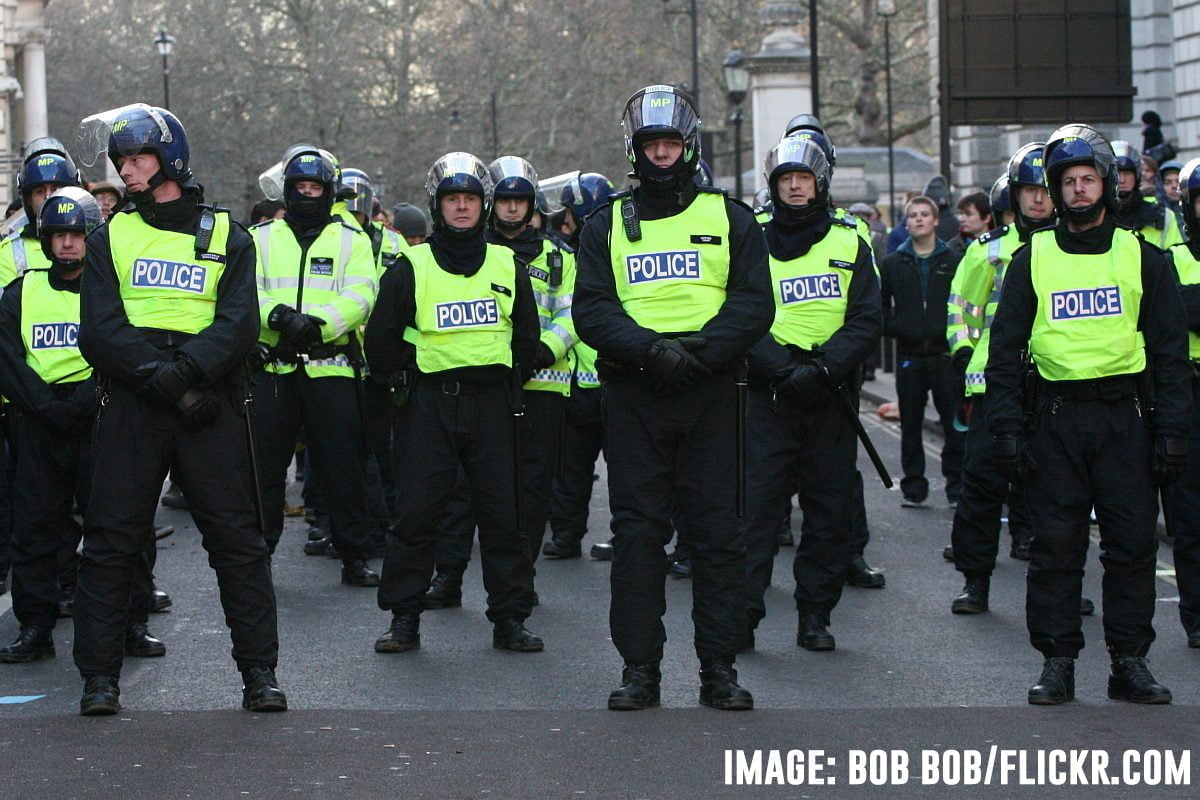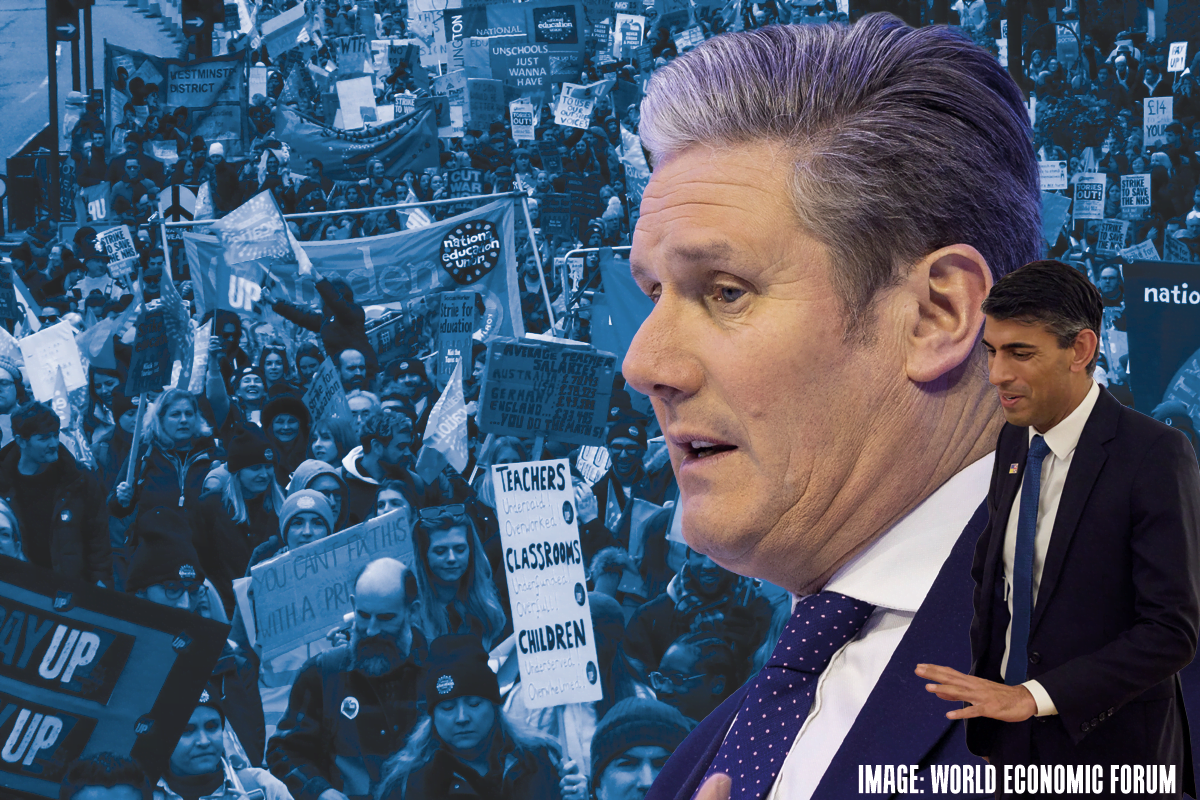Lenin once wrote an article entitled ‘inflammable material in world politics’. This description accurately applies everywhere today, including in Britain.
Last month was the hottest June on record for the country. These high temperatures are not confined to the UK’s weather system, however, but are equally applicable to the social climate.
France has witnessed massive upheavals recently, following the murder of a 17-year-old youth of Algerian background at the hands of the police.
For over a week, there has been night after night of rioting, with hundreds arrested. The UK government even warned travellers to avoid “areas where riots are taking place”.
But Britain has also been affected by its own explosive events on the streets in recent months.
In May, young people in Ely, south Wales, rioted in reaction to the death of two teenagers, who were involved in a fatal crash after being chased by police.
This was not an isolated incident, but was another clear sign of the rising tensions in society.
“Many people in Ely will rely on social security benefits for their weekly income,” explained Mark Drakeford, the Welsh First Minister. “They have been systematically eroded over the last 13 years. People have less and less to live on, and they see their bills going up every day.
“The struggle is not theoretical for those people,” the Welsh Labour leader concluded, “it’s something that matters and bites into their lives every single day of the week.”
Hopelessness and alienation

Britain is today sitting atop a volcano. An accumulation of anger and discontent has built up over the years, especially amongst the youth. They have never felt so alienated; confronted with a racist, abusive police force and a rotten establishment.
According to a poll conducted by Redfield & Wilton Strategies, 55% said that they were “significantly” or “fairly” certain that the cost-of-living crisis could lead to public disorder, as ordinary people struggle to make ends meet.
“The lack of hope is palpable,” stated big business mouthpiece the Financial Times. “People feel battered by inflation, falling living standards, strikes, public service crises, and a general sense of decline.”
This reflects the dead end that many find themselves in, with no prospect of escape.
One recent poll by the New Britain Project found that nearly three-fifths of voters think that “nothing in Britain works anymore”.
More alarming for the ruling class, only a fifth believe that politicians have the ability to solve the country’s biggest issues, indicating a clear lack of faith in the capitalist establishment.
“Voters may not be wrong to have little faith,” fretted the Financial Times. “The UK faces immense technological, environmental, financial, and geopolitical challenges. Public services require major reform as well as funding…But of all the UK’s problems, the loss of hope is the most chilling.”
This sums up the dilemma for British capitalism and its representatives. All that politicians can offer is more hot air, creating ever-more despair, resentment, and bitterness in the depths of society.
Pitchfork rebellion
While living standards are driven down, and life gets harder and harder, those at the top are making a killing.
The mega-rich are flaunting their wealth, with tourist trips into space, or adventures into the deep-blue sea. No wonder there was so little sympathy recently for the billionaires on the Titan submersible, when they sank to the bottom of the Atlantic ocean. There is nothing but contempt for these rich parasites.
The super-rich are so alarmed by the possibility of “civil disruption”, that some of them are meeting to discuss how they might stem the tide.
A recent investment conference organised by the Spear’s wealth management magazine, for example, held at the five-star Savoy hotel in London, told its elite audience that there was a “real risk of actual insurrection” if they did not address the yawning gap between rich and poor.
This threat of “pitchforks and torches” no doubt sent shivers down the spines of the wealthy attendees gathered at this jamboree of billionaires and bankers.
Speakers from groups such as ‘Patriotic Millionaires UK’ pleaded for increased philanthropy from the rich; for a few extra crumbs to throw down to the hoi polloi. But such pleas fell on deaf ears. These loaded leeches have no intention of voluntarily parting with their fortunes.
Combustible cocktail

In Westminster, meanwhile, we have a government of the rich, by the rich – intent on making workers and the vulnerable pay for capitalism’s crises.
The Tories are hoping to delay making the biggest cuts until after the next election. In the meantime, however, workers are seeing their living standards eroded by stubbornly-high inflation and real-terms attacks on pay.
On the other side of the aisle, Starmer is desperately trying to dampen expectations about what Labour will achieve if it comes to power. In truth, he will do whatever big business tells him.
A massive social explosion is therefore being prepared. Working people are not prepared to face more cuts and attacks, whatever the excuses.
At bottom, this combustible cocktail is the product of the senile decline of the capitalism system. Capitalism can no longer afford reforms, but only counter-reforms. The old order is falling apart.
The ruling class, facing these pressures from below, can no longer rule as they did in the past. The working class, meanwhile, can no longer live with this decrepit status quo.
The stage is being set for titanic class struggles. Millions are already questioning the entire system.
The labour movement leaders, however, are burying their heads in the sand. They hope that everything will return to ‘normal’; that social peace and tranquillity will return. But they are in for a nasty shock. There is no solution to the problems of the working class within the confines of capitalism.
Fight for revolution
The possibility of riots, in Britain and beyond, is an expression of the impasse in society. But these outburst are a case of blind revolt. Rioting offers no way forward for workers and youth.
Instead, the fight must be for revolution: to overthrow this rotten dog-eat-dog system, and to transform society along socialist lines.
What is required is the forging of a revolutionary leadership; a Marxist leadership that is capable of matching up to the challenges facing us.
Such a leadership will not be thrown up spontaneously, but must be consciously and actively built.
Lenin’s talk of “inflammable material” described the prelude to the Russian Revolution of 1917. Today, events are preparing the way for new revolutions.
That is why we are urgently building the International Marxist Tendency. We appeal to you to help us in this task.






